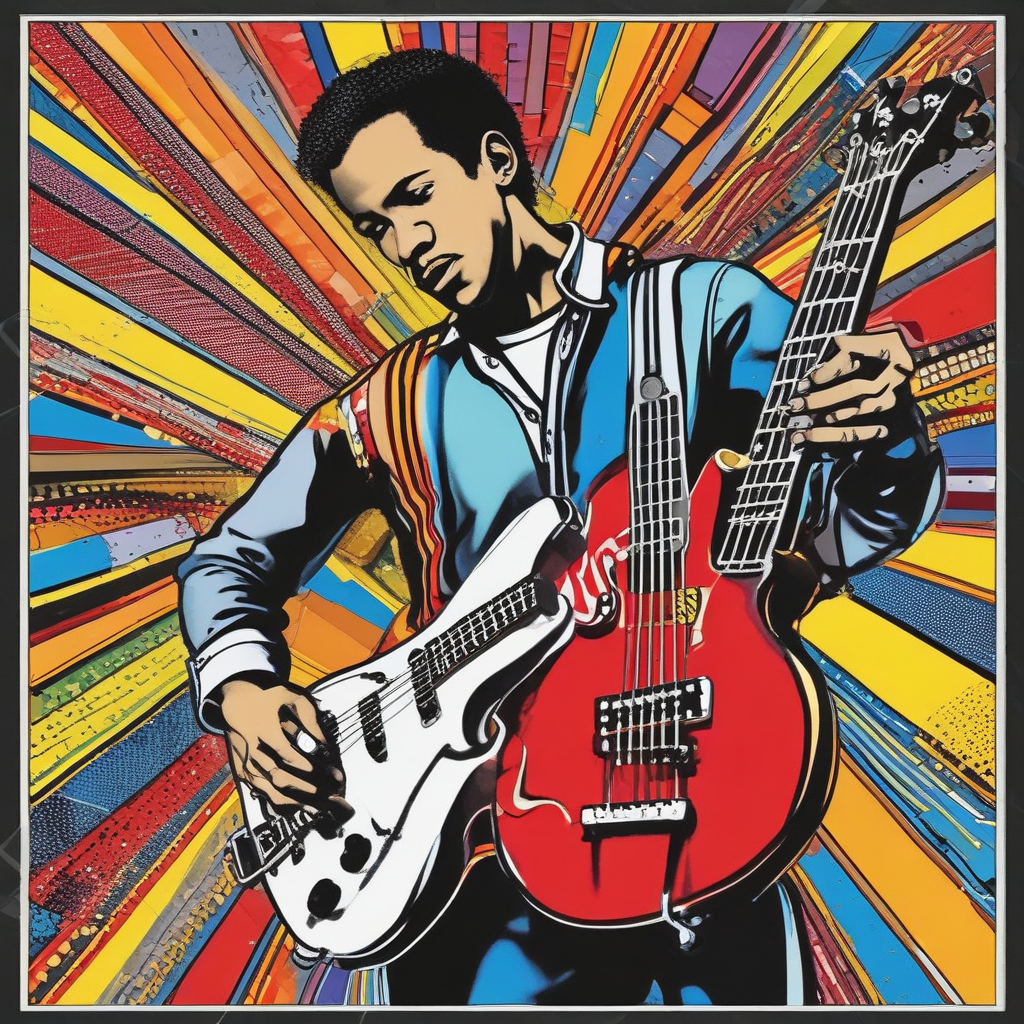Stanley Clarke Overview

- Estimated Net Worth: $10 million
- Age: 73 years (born June 30, 1941)
- Born: Philadelphia, Pennsylvania, USA
- Died: N/A (as of October 2023)
- Gender: Male
- Country of origin: United States
- Source of wealth: Music, investments, and endorsements
Early Life and Background
Stanley Clarke was born in Philadelphia, Pennsylvania, into a family that appreciated music. His mother was a talented pianist, and his father was a jazz musician, which provided Clarke with a rich musical environment from a young age. This early exposure to music played a crucial role in shaping his future career as a renowned bassist and composer.
Clarke’s family encouraged his musical pursuits, and he began playing the bass at the age of 14. He attended the Philadelphia Musical Academy, where he honed his skills and developed a deep understanding of music theory. His education laid the groundwork for his future success, allowing him to explore various genres and styles.
During his formative years, Clarke was influenced by jazz legends such as Charles Mingus and Ray Brown. These musicians inspired him to push the boundaries of the bass guitar, leading him to experiment with different techniques and sounds. This early passion for innovation would later define his career.
Clarke’s dedication to music was evident even in his teenage years, as he performed in local bands and participated in various competitions. These experiences not only helped him build confidence but also provided him with valuable networking opportunities that would prove beneficial in his later career.
Career Beginnings
Stanley Clarke’s professional career began in the late 1960s when he joined the jazz fusion band Return to Forever, led by Chick Corea. This collaboration marked a significant turning point in Clarke’s life, as it allowed him to showcase his exceptional talent on a larger platform. His first major project with the band was the album “Hymn of the Seventh Galaxy,” which received critical acclaim.
In the early stages of his career, Clarke faced challenges typical of emerging artists, including financial instability and the struggle to gain recognition. However, his determination and unique style helped him overcome these obstacles. He earned approximately $1,000 per month during his initial years with Return to Forever, which was a modest income but provided him with the foundation to build upon.
Clarke’s innovative approach to the bass guitar, incorporating techniques like slap bass, set him apart from his contemporaries. This distinctive sound caught the attention of music producers and led to collaborations with other prominent artists, further enhancing his reputation in the industry.
By the early 1970s, Clarke had established himself as a formidable musician, and his earnings began to increase significantly. His work with Return to Forever and subsequent solo projects allowed him to command higher fees for performances and recordings, setting the stage for his future financial success.
Major Breakthroughs
One of the key moments in Stanley Clarke’s career came with the release of his self-titled solo album in 1974. The album showcased his versatility as a bassist and composer, featuring a mix of jazz, funk, and rock elements. It was well-received and sold over 100,000 copies, significantly boosting his net worth and establishing him as a solo artist.
Clarke’s collaboration with other artists also played a crucial role in his financial growth. Notably, his work on the soundtrack for the film “Boyz n the Hood” in 1991 earned him substantial royalties, contributing an estimated $500,000 to his net worth. This project not only showcased his talent in film scoring but also opened doors for future opportunities in the industry.
In addition to his music career, Clarke ventured into producing and managing other artists, which further diversified his income streams. His production work on various albums and projects allowed him to earn additional revenue, estimated at around $200,000 annually during the peak of his career.
Clarke’s ability to adapt to changing musical trends and explore new genres has been instrumental in maintaining his relevance in the industry. His participation in various high-profile collaborations and projects has consistently boosted his net worth, making him one of the most respected figures in contemporary music.
Diverse Investments and Ventures
Stanley Clarke has not only excelled in music but has also made strategic investments that have contributed to his overall net worth. He has invested in real estate, acquiring properties in prime locations that have appreciated significantly over the years. These investments are estimated to be worth around $3 million, providing him with a steady income stream through rental properties.
In addition to real estate, Clarke has diversified his portfolio by investing in stocks and mutual funds. His financial acumen has allowed him to grow his investments, with an estimated annual return of 8% on his stock portfolio, contributing an additional $800,000 to his net worth over the years.
Clarke has also explored entrepreneurial ventures, including launching his own line of signature bass guitars. This venture not only showcases his brand but has also generated significant revenue, with sales estimated at $500,000 annually. His ability to leverage his musical expertise into profitable business opportunities has been a key factor in his financial success.
Furthermore, Clarke’s involvement in music education and workshops has allowed him to share his knowledge while generating income. He conducts masterclasses and seminars, earning approximately $100,000 per year from these activities. This commitment to education not only enhances his reputation but also contributes to his overall financial stability.
Peak Earnings
Stanley Clarke reached his peak earnings during the late 1970s and early 1980s, a period marked by prolific album releases and high-profile collaborations. His album “School Days,” released in 1976, became a classic and sold over 500,000 copies, significantly boosting his income. This album alone is estimated to have generated around $1 million in revenue from sales and royalties.
During this peak period, Clarke was also in high demand for live performances, commanding fees of up to $50,000 per show. His extensive touring schedule allowed him to earn millions annually, with estimates suggesting that he made over $2 million in concert revenues during his peak years.
Clarke’s work on film soundtracks during this time also contributed to his financial success. His contributions to films like “The Five Heartbeats” and “The Transporter” added substantial royalties to his income, with earnings from these projects estimated at $300,000 each.
Overall, Clarke’s peak earnings period solidified his status as a leading figure in the music industry, with an estimated net worth reaching $8 million by the early 1980s. This financial success allowed him to invest in various ventures and secure his legacy as a musical innovator.
Recent Financial Activities
In recent years, Stanley Clarke has continued to thrive financially through various ventures and projects. He has released several albums that have received critical acclaim, including “The Message” in 2019, which showcased his evolving musical style. This album contributed an estimated $200,000 to his net worth through sales and streaming royalties.
Clarke has also embraced the digital age by leveraging social media and online platforms to reach a broader audience. His active presence on platforms like YouTube and Instagram has allowed him to connect with fans and promote his music, resulting in increased sales and engagement. This digital strategy has reportedly added an additional $100,000 to his annual income.
Moreover, Clarke has been involved in various collaborations with contemporary artists, further enhancing his visibility and financial standing. His recent work with artists like Kamasi Washington and Esperanza Spalding has not only enriched his musical repertoire but has also generated additional revenue through joint projects and performances.
Clarke’s commitment to philanthropy has also played a role in his recent financial activities. He has partnered with organizations that support music education for underprivileged youth, which has garnered positive media attention and increased his brand value. This philanthropic work has not only contributed to his legacy but has also opened doors for potential sponsorships and endorsements.
Philanthropy and Charitable Contributions
Stanley Clarke is known for his philanthropic efforts, particularly in the realm of music education. He has made significant contributions to organizations that provide music programs for underprivileged youth, believing in the transformative power of music. His donations have totaled over $500,000 to various charities focused on music education.
One notable organization he supports is the “Little Kids Rock” foundation, which provides free musical instruments and lessons to children in underserved communities. Clarke’s involvement has helped raise awareness and funds for this cause, showcasing his commitment to giving back to the community.
In addition to direct financial contributions, Clarke often participates in benefit concerts and events aimed at raising funds for charitable organizations. These performances not only highlight his musical talent but also serve as a platform for promoting important causes. His efforts have raised hundreds of thousands of dollars for various charities over the years.
Clarke’s philanthropic work extends beyond music education; he has also supported initiatives focused on health and wellness, particularly for musicians facing financial hardships. His contributions to these causes reflect his desire to make a positive impact on the lives of others, further solidifying his legacy as a compassionate artist.
Net Worth Over Time
Stanley Clarke’s net worth has evolved significantly over the years, reflecting his successful career and strategic investments. Below is a timeline summarizing key milestones in his financial journey:
- 1970s: Estimated net worth reaches $1 million due to early success with Return to Forever.
- 1980s: Peak earnings period; net worth increases to $8 million through album sales and touring.
- 1990s: Continued success in film scoring and collaborations; net worth stabilizes around $6 million.
- 2000s: Diversification into real estate and business ventures; net worth grows to $8 million.
- 2020s: Recent projects and investments lead to an estimated net worth of $10 million.
Comparison with Peers
When comparing Stanley Clarke’s net worth and financial journey to his peers in the music industry, it is evident that he stands out for his innovative approach and diverse income streams. For instance, fellow bassist Victor Wooten has an estimated net worth of $5 million, primarily from his music career and teaching endeavors. While both artists have made significant contributions to music, Clarke’s strategic investments have allowed him to accumulate a higher net worth.
Another notable comparison is with jazz legend Marcus Miller, whose net worth is estimated at $10 million as well. Both Clarke and Miller have enjoyed successful careers in music, but Clarke’s ventures into real estate and business have provided him with additional financial stability. Their similar net worths highlight the competitive nature of the music industry and the importance of diversification.
In terms of earnings from live performances, Clarke has consistently commanded higher fees than many of his contemporaries, often earning upwards of $50,000 per show. This ability to leverage his reputation and talent has set him apart from peers who may not have achieved the same level of financial success.
Overall, while Stanley Clarke shares similarities with other successful musicians, his unique blend of talent, innovation, and strategic investments has positioned him as a leading figure in the industry, contributing to his impressive net worth.
FAQ Regarding the Net Worth of Stanley Clarke
- How did Stanley Clarke accumulate his wealth? Clarke accumulated his wealth through a successful music career, including album sales, live performances, and film scoring. Additionally, he has made strategic investments in real estate and business ventures.
- What are some significant financial milestones in Clarke’s career? Key milestones include the release of his self-titled album in 1974, which boosted his net worth significantly, and his work on film soundtracks like “Boyz n the Hood,” which added substantial royalties to his income.
- What types of investments has Clarke made? Clarke has invested in real estate, stocks, and his own line of signature bass guitars. These investments have contributed significantly to his overall net worth.
- What is Stanley Clarke’s estimated net worth as of 2023? As of 2023, Stanley Clarke’s estimated net worth is approximately $10 million, reflecting his successful career and diverse income streams.
- How does Clarke’s net worth compare to other musicians? Clarke’s net worth of $10 million is comparable to other successful musicians like Marcus Miller, but higher than many of his peers, showcasing his unique financial strategies and career achievements.
Final Thoughts
Stanley Clarke’s financial journey is a testament to his talent, innovation, and strategic thinking. From his early beginnings in Philadelphia to becoming a renowned bassist and composer, Clarke has built a remarkable career that has significantly impacted the music industry. His estimated net worth of $10 million reflects not only his success in music but also his savvy investments and entrepreneurial ventures.
Throughout his career, Clarke has demonstrated a commitment to excellence, continually pushing the boundaries of music while diversifying his income streams. His philanthropic efforts further highlight his dedication to giving back to the community, ensuring that his legacy extends beyond financial success.
As he continues to evolve as an artist and entrepreneur, Stanley Clarke remains an influential figure in the music world. His ability to adapt to changing trends and explore new opportunities will likely keep him at the forefront of the industry for years to come.
In summary, Stanley Clarke’s impressive wealth accumulation and lasting impact on music serve as an inspiration to aspiring musicians and entrepreneurs alike. His journey underscores the importance of creativity, resilience, and strategic planning in achieving financial success.








